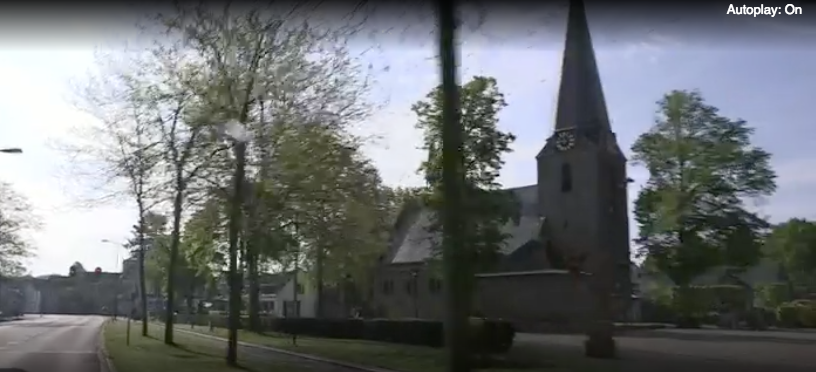As Faithwire has reported, Christian persecution in Iran and throughout the Middle East is at an all time high, but that hasn’t stopped brave men and women from quite literally risking their lives to covert to Christianity and quietly practice their faith.
A new report from the BBC shows the rise of Christianity among Iranians has also made its way to Europe, with more and more refugees converting from Islam despite it being considered apostasy in Iran to do so. Some are questioning the legitimacy of these conversions, however, as becoming a Christian often has material benefits for refugees fleeing war torn middle eastern nations.
READ: Encouraging New Report Finds Christianity Rising at ‘Exponential Rate’ Among Youth in Iran
Focusing on a church in the Netherlands, BBC Persian’s Fariba Sahraei visited a Christian church where nearly half the congregation hails from the local refugee center. Pastor Gijs van den Brink said he baptizes more than 25 Iranians a year, including Aref, whose baptism in a small pool outside the church was captured on video.

Aref explained that he chose to convert after meeting Christians and realizing he had been misinformed for most of his life about the faith.
“The Christians I met were really nice,” he told the BBC. “At the beginning, I wondering how they could be so good. I wanted to know more about their opinions and what they actually thought. And when I read about it, I realized I knew nothing about Christianity. It was so closed where we grew up. We couldn’t get information.”
Though Christianity is constitutionally recognized as the minority religion in Iran, conversion is punishable by death. The nation’s small Christian population primarily practice in unassuming home churches. While the bravery of the Christians within Iran’s borders is largely admired, the intentions of those who are converting upon arrival in Europe is less clear.
Pastor Gijs said he is aware that refugees may be converting in an effort to boost their asylum case, but he does his best to weed out the insincere.
“If someone enters the church and from the first day he asks me ‘when can I be baptized?’ then I know enough,” he said. “I know that [the person] has [an asylum] case and he’s searching for baptism. Then I explain to him that it will not help him.”
Authorities in the Netherlands are also privy to the potential fraud and have adjusted their questioning techniques accordingly.
“The difficulty is that we can’t really look into people’s minds and heart,” immigration officer Annick Oerlemans said. “Initially, a lot of our questions focused on practical Biblical knowledge. We have shifted now to questions that are focused more on the process people have gone through and their personal experiences.”
But not everyone is convinced the religious leaders and immigration officials are doing enough. A former musician at the church featured in the report expressed his concerns that refugees with nefarious intent are ultimately going to hurt the asylum seekers who really do need help.
“They can use their baptism to get status,” said Simon Wienke, who has since left the parish. “And then you’re really in trouble because the ones who really need help here aren’t going to be taken seriously
Despite the criticism, Pastor Gijs continues to be open to his new congregants because believes the future of Christianity in Europe hangs in the balance.
“The church is dying in Europe and in the Netherlands too. Every week, two traditional churches close in this country,” he concluded. “Only old people are sitting here.”
(H/T: BBC)


